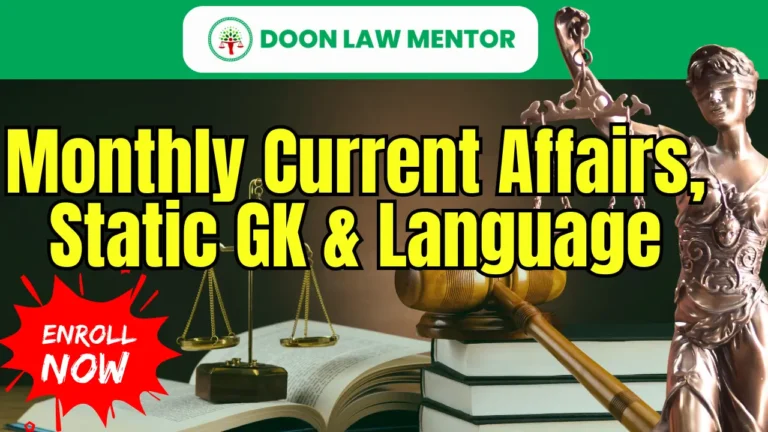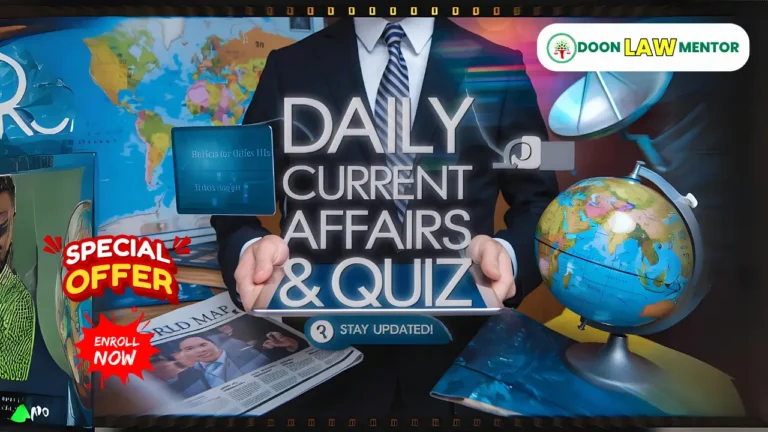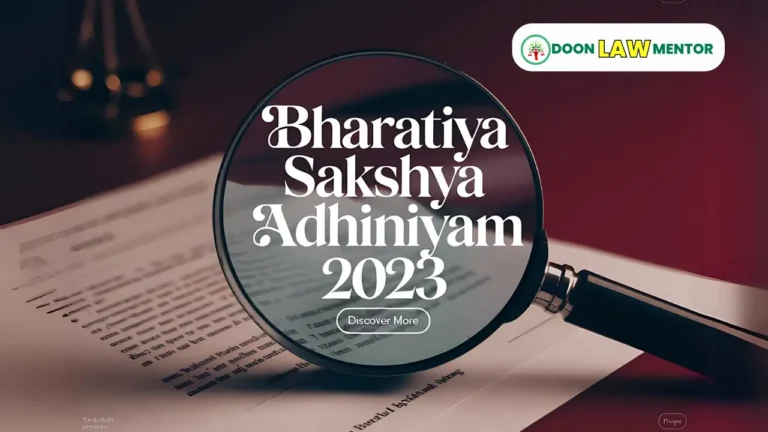The Jharkhand HC orders Revision of Jharkhand Civil Judge Pre Exam Result, halting the Mains exam in a landmark 2025 ruling. This blog covers the court’s directive, legal insights, and preparation tips for Judiciary, APO, and JLO aspirants, ensuring you’re ready for 2025 exams.
Table of Contents
Introduction
The Jharkhand High Court’s landmark ruling that ordered the Jharkhand Public Service Commission (JPSC) to revise the Civil Judge (Junior Division) Preliminary Examination result, halting the Mains exam once again. This decision, addressing errors in the revised answer key, impacts thousands of judiciary aspirants under Advertisement No. 22/2023. For Judiciary, APO, and JLO candidates preparing for 2025 exams, this ruling highlights the judiciary’s commitment to fairness and transparency. This blog explores the court’s directive, its legal basis, and how aspirants can adapt their preparation strategies amidst this development.
Jharkhand Judiciary Revised Pre Result Again: High Court Orders Correction in Civil Judge Prelims
Background
The JPSC conducted the Civil Judge (Junior Division) Prelims 2023 on March 10, 2024, under Advertisement No. 22/2023, based on the Jharkhand Judicial Service (Recruitment) Regulations, 2013. A revised answer key released on May 13, 2024, faced backlash for persistent inaccuracies, prompting aspirants to file writ petitions. Key cases included W.P.(S) No. 4274/2024 (Namita Raje), W.P.(S) No. 2171/2024 (Shubhra Khanna), W.P.(S) No. 4178/2024 (Akanksha Priya), W.P.(S) No. 4667/2024 (Riya Sonal & others), and W.P.(S) No. 4702/2024 (Kshitij). Heard by a Division Bench of Chief Justice M.S. Ramachandra Rao and Justice Deepak Roshan, the court addressed errors in three questions from Booklet Series A.
Details of the Challenged Questions
- Question No. 8 (English Grammar):
- Question: “Choose the correct sentence.”
Options: (A) More than one boy was absent from the class. (B) More than one boy were absent from the class. (C) More than one boy absent from the class. (D) More than two boys was absent from the class. - JPSC Error: Marked (B) as correct, despite (A) being grammatically correct (“More than one” takes a singular verb).
- Court’s Finding: Option (A) is correct; JPSC’s choice of (B) was demonstrably wrong.
- Question: “Choose the correct sentence.”
Read More: Delhi High Court Slams Baba Ramdev’s Sharbat-Jihad Remarks
- Question No. 74 (IPC Sections):
- Question: Referenced the Supreme Court’s ruling in Ashwini Kumar Upadhyay v. Union of India (W.P. (C) No. 943/2021) on suo motu action against hate speeches, asking which IPC sections were mentioned.
Options: (A) Sections 153A and 153B, (B) Section 295A, (C) Section 506, (D) All the above. - JPSC Error: Marked (D) as correct, including Section 506, which wasn’t mentioned in the SC ruling (only Sections 153A, 153B, 295A, and 505 were cited).
- Court’s Finding: Section 506’s inclusion was incorrect; “etc.” cannot extend to all IPC sections. Both (A) and (B) were correct answers.
- Question: Referenced the Supreme Court’s ruling in Ashwini Kumar Upadhyay v. Union of India (W.P. (C) No. 943/2021) on suo motu action against hate speeches, asking which IPC sections were mentioned.
- Question No. 96 (Indian Contract Act):
- Question: “Which of the following is incorrect about agency under the Indian Contract Act?”
Options: (A) An agent may be employed to do any act for the principal. (B) Only such person may be employed as agent who has obtained the age of majority. (C) The authority of agent must be expressed in writing. (D) No consideration is necessary to create an agency. - JPSC Error: Revised the answer from (C) to (A), despite (A) being correct under Section 182 (agents can perform any act). Options (B) and (C) were incorrect per Sections 184 (minors can be agents) and 186 (agency can be implied).
- Court’s Finding: Both (B) and (C) are incorrect; JPSC’s selection of (A) was wrong.
- Question: “Which of the following is incorrect about agency under the Indian Contract Act?”
Read More: How Chief Justice of India is Appointed: Provisions, Rules, Regulations, and Landmark Judgments
Legal Principles Applied
The court relied on precedents like Kanpur University v. Samir Gupta (1983) and Ran Vijay Singh v. State of U.P. (2018), emphasizing:
- Answer keys are presumed correct unless proven manifestly wrong without inferential reasoning.
- Judicial intervention is permissible in rare cases if errors are clear, despite no re-evaluation rules (Himachal Pradesh PSC v. Mukesh Thakur, 2010).
- Courts can intervene in non-technical subjects like English and Law, where errors are evident (High Court of Tripura v. Tirtha Sarathi Mukherjee, 2019).
Court’s Final Judgment
On April 25, 2025, the Jharkhand High Court ruled:
- Award 1 mark to candidates selecting Option (A) for Question No. 8.
- Delete Questions No. 74 and 96 from evaluation, reducing the total to 98 questions.
- Normalize scores to 100 using the formula: (Marks Obtained / 98) × 100.
- Apply original cut-offs to the recomputed scores (e.g., a candidate scoring 75/98 gets 76.53/100; UNR cut-off remains 75).
- Publish a revised merit list within 4 weeks (by May 23, 2025).
The court rejected other pleas, including a demand to call 15 times the vacancy number for Mains, citing a prior ruling in Rajveer Singh v. The State of Jharkhand (February 25, 2025).
Impact of the Ruling
- Mains Exam Halted: The ongoing preparation for the Mains exam is paused, pending the revised result.
- Restored Confidence: The ruling reinforces trust in the judicial process for aspirants.
- Precedent for Fairness: It sets a benchmark for addressing exam errors, ensuring meritocracy.
- Accountability: JPSC is held accountable for diligence in answer key preparation.
Why This Matters for Judiciary, APO, and JLO Aspirants
This ruling highlights judicial oversight in recruitment exams, offering key lessons in fairness and constitutional law (Article 14) for aspirants. It’s vital for Prelims (memorize case facts and legal principles), Mains (essay on judicial intervention in exams), and Interviews (discuss exam transparency), ensuring practical application in exam questions on administrative law.
Challenges and Solutions
- Challenge: Uncertainty in Mains Preparation
- Solution: Focus on core subjects like IPC and Contract Act while awaiting the revised list.
- Challenge: Understanding Legal Precedents
- Solution: Study Kanpur University and Ran Vijay Singh cases for clarity on judicial review in exams.
- Challenge: Managing Exam Delays
- Solution: Use the extra time to strengthen weak areas like English grammar.
Conclusion
The Jharkhand High Court’s April 25, 2025, ruling ordering the revision of the Civil Judge Prelims result underscores the judiciary’s role in ensuring fairness in competitive exams. For Judiciary, APO, and JLO aspirants, this case offers valuable insights into legal principles and exam strategies, making it a pivotal topic for 2025 preparation. As JPSC prepares the revised merit list, aspirants must adapt and stay focused.
Call-to-Action
Master the Jharkhand HC orders Revision of Jharkhand Civil Judge Pre Exam Result with https://doonlawmentor.com/courses! Follow @doonlawmentor on Instagram for updates! #JudiciaryExam2025 #JharkhandHC
FAQs
- What did the Jharkhand High Court order on April 25, 2025?
The court ordered JPSC to revise the Civil Judge Prelims result, correct errors, and recompute scores. - Why was the Civil Judge Prelims result revised?
Due to errors in the answer key for Questions 8, 74, and 96 in Booklet A. - Which questions were challenged in the Jharkhand HC case?
Question No. 8 (English grammar), Question No. 74 (IPC sections), and Question No. 96 (Indian Contract Act). - What was the error in Question No. 8?
JPSC marked Option (B) as correct, but Option (A) was grammatically correct. - What mistake did JPSC make in Question No. 74?
JPSC included Section 506 IPC in the answer, which wasn’t mentioned in the SC ruling. - What was wrong with Question No. 96’s answer key?
JPSC marked Option (A) as incorrect, despite it being correct under Section 182 of the Indian Contract Act. - What legal principles did the court apply?
Principles from Kanpur University and Ran Vijay Singh, allowing intervention in clear errors. - How will JPSC recompute the marks?
After deleting Questions 74 and 96, marks will be normalized using (Marks Obtained / 98) × 100. - What is the cut-off for UNR category in the Prelims?
75 marks. - By when must JPSC release the revised merit list?
By May 23, 2025 (within 4 weeks from April 25). - How many questions remain after the court’s ruling?
98 questions, after deleting Questions 74 and 96. - Who filed the writ petitions?
Aspirants like Namita Raje, Shubhra Khanna, Akanksha Priya, Riya Sonal, and Kshitij. - What was the JPSC advertisement number for the exam?
Advertisement No. 22/2023. - When was the revised answer key released by JPSC?
May 13, 2024. - Why was the Mains exam halted?
To accommodate the revised Prelims result and ensure fairness. - What precedent did the court cite for rejecting the 15x vacancy plea?
Rajveer Singh v. The State of Jharkhand (February 25, 2025). - What sections of the Indian Contract Act were relevant for Question 96?
Sections 182, 184, and 186. - What does this ruling mean for aspirants?
It ensures meritocracy and fairness in the selection process. - How can aspirants prepare during this delay?
Focus on Mains subjects like IPC, Contract Act, and English grammar. - What broader impact does this judgment have?
It sets a precedent for judicial oversight in exam errors, ensuring accountability.
#DoonLawMentor #JharkhandJudiciary2025 #JPSCCivilJudge #JudiciaryExamUpdate #LawAspirants #CivilJudgeMains #jharkhandjudicary #jharkhandjudiciarymainsexam #jharkhandjudiciarymains #jharkhandciviljudgemains #jharkhandciviljudgemainsexamdate #jharkhandciviljudgemainskabhai #jharkhandjudiciarymainsresult #jharkhandciviljudgemainsresult










